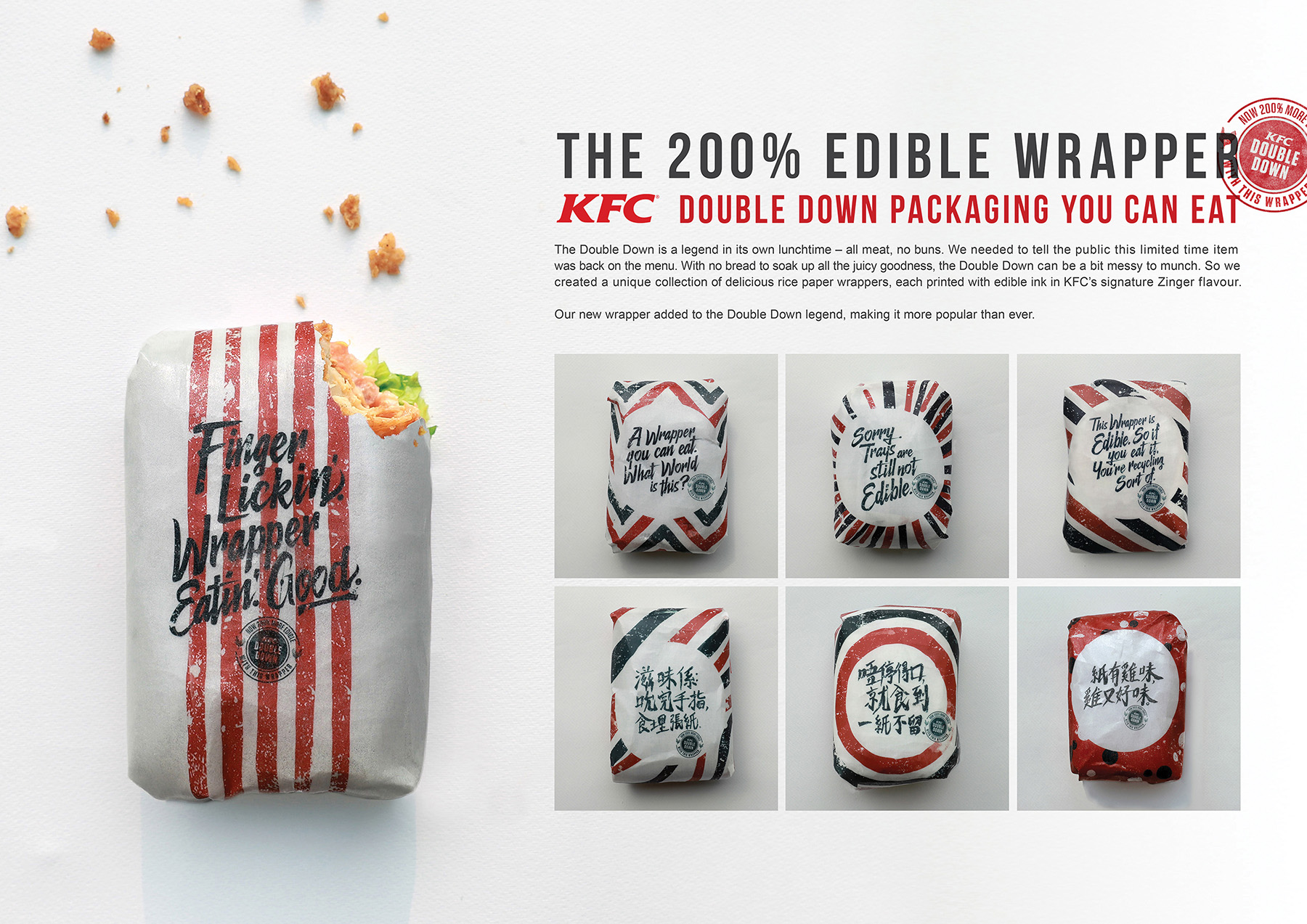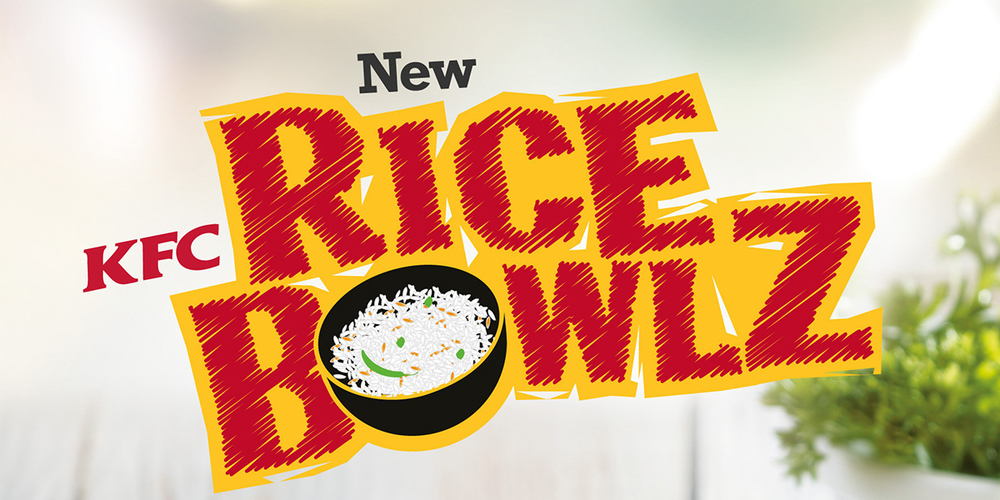Environmental concern is flooding the planet, and this provokes a social implication in favor of recycling. Some multinationals, such as Starbucks, are beginning to have ecologically responsible policies, inclined to encourage reuse. Still, there are others who believe that is not enough.
The last post was about biodegradable packaging, in which we talked about the necessary reduction of plastic in packages. Today, instead of limiting their use, we will see different ways of eating it.
Yes, you read correctly: the following companies have decided to create edible containers to reach the next level of recycling. These innovative ideas are not very popular yet, but they are trying to break into the market and help the planet at all costs.
KFC
This fast-food franchise, known worldwide for its fried chicken, has surprised us with three choices of edible containers. A couple of changes in its packaging may seem insignificant, but they are one of the 10 most powerful fast food companies in the world, so it is something to consider. First of all, we found a rice paper wrapper for his Double Down sandwich. In their campaign, they assure that the product is 200% edible, since you can eat both inside and outside.
 This mixture of
This mixture of humor and awareness makes this experiment seem like a great idea. It’s only available in Asia, which is a shame.
In second place, KFC devised edible bowls made with Mexican corn tortillas. The so-called “Rice Bowlz” is only sold in India, where in 2016 plastic was already banned.
 This rice dish with chicken and
This rice dish with chicken and sauce is already one of the most sold products by the company in that area. Many clients are in favor of the initiative, since they feel part of the eco-friendly process and also does not mean an extra price, because KFC doesn’t charge an extra price for the edible bowl.
The third and last invention is a coffee cup, made from cookie. Its inside is coated with white chocolate, to resist for a period of time the heat of the drink. This edible container is wrapped in sugar paper too. The “Scoff-ee cups”, made by KFC and Seattle’s Best Coffee, were only tested in several establishments in London. Still, other companies like Lavazza have already joined testing on these new forms.
The growing concern for the environment is making the big brands react, which little by little investigate and work to contribute products that respect our planet.
/cdn.vox-cdn.com/uploads/chorus_image/image/45770950/Image_4.0.0.jpg) ALPRO
Taking advantage of the “Plant Power Day”, Alpro has created a plant-based container aims to reduce the use of plastic and other materials. It is perfect for take away products, which is why it is available to Deliveroo’s London customers.
This dairy product alternative brand had joined the eco-friendly (and vegan) movement long time ago, but now they have exceeded our expectations creating this edible alternative to packaging.
The container, called “Plant-Based Bucket” is made with a mixture of seeds and has a crunchy bread texture, making it perfect for dipping with sauces. It carries a 100% vegan menu, made entirely with natural and animal cruelty free products: cassava chips and mushroom nuggets. Also, the dish comes with an almond drink.
ALPRO
Taking advantage of the “Plant Power Day”, Alpro has created a plant-based container aims to reduce the use of plastic and other materials. It is perfect for take away products, which is why it is available to Deliveroo’s London customers.
This dairy product alternative brand had joined the eco-friendly (and vegan) movement long time ago, but now they have exceeded our expectations creating this edible alternative to packaging.
The container, called “Plant-Based Bucket” is made with a mixture of seeds and has a crunchy bread texture, making it perfect for dipping with sauces. It carries a 100% vegan menu, made entirely with natural and animal cruelty free products: cassava chips and mushroom nuggets. Also, the dish comes with an almond drink.
 What Alpro really wanted to show with this initiative, apart from its capacity for innovation, is the power of the plants. The company had gone viral on some social networks, especially in vegetarian and eco-friendly themed ones.
LOLIWARE
This plastic substitute pioneer brand has achieved a high level of recognition. They are basically dedicated to creating single-use items which are designed to disappear. But how do they differ from biodegradable cardboard ones? These can also be consumed in several flavors: vanilla or cherry are some of them, although you can also order them with a neutral taste. Its material is 100% natural, since it is made with marine algae and natural sweeteners, such as natural fruit extracts.
What Alpro really wanted to show with this initiative, apart from its capacity for innovation, is the power of the plants. The company had gone viral on some social networks, especially in vegetarian and eco-friendly themed ones.
LOLIWARE
This plastic substitute pioneer brand has achieved a high level of recognition. They are basically dedicated to creating single-use items which are designed to disappear. But how do they differ from biodegradable cardboard ones? These can also be consumed in several flavors: vanilla or cherry are some of them, although you can also order them with a neutral taste. Its material is 100% natural, since it is made with marine algae and natural sweeteners, such as natural fruit extracts.
 Apart from these “jelly” glasses, they have also a straw collection, made with the same material. They have a texture similar to conventional ones, but their great advantage is the so-called “hypercompostability”. Its use can be extended up to 18 hours, a “medium” point between paper straws, which last 1 hour, or plastic ones that do it for more than 500 years.
The LOLIWARE team is aware and focused on replacing the more than 360 billion straws that are used worldwide each year. “Single-use plastics should never be manufactured to last, they must be designed to disappear”, says CEO Chelsea Briganti.
Apart from these “jelly” glasses, they have also a straw collection, made with the same material. They have a texture similar to conventional ones, but their great advantage is the so-called “hypercompostability”. Its use can be extended up to 18 hours, a “medium” point between paper straws, which last 1 hour, or plastic ones that do it for more than 500 years.
The LOLIWARE team is aware and focused on replacing the more than 360 billion straws that are used worldwide each year. “Single-use plastics should never be manufactured to last, they must be designed to disappear”, says CEO Chelsea Briganti.
 We already know that these last two items are not totally packaging, since they don’t contain any branded product inside. But they are a beneficial (and delicious) alternative, so it’s necessary to share them.
We have already seen some of the novelties of ecological and biodegradable packaging, but there is still much to be done. What will be the next trend in sustainable packaging?
We already know that these last two items are not totally packaging, since they don’t contain any branded product inside. But they are a beneficial (and delicious) alternative, so it’s necessary to share them.
We have already seen some of the novelties of ecological and biodegradable packaging, but there is still much to be done. What will be the next trend in sustainable packaging?
 This mixture of humor and awareness makes this experiment seem like a great idea. It’s only available in Asia, which is a shame.
In second place, KFC devised edible bowls made with Mexican corn tortillas. The so-called “Rice Bowlz” is only sold in India, where in 2016 plastic was already banned.
This mixture of humor and awareness makes this experiment seem like a great idea. It’s only available in Asia, which is a shame.
In second place, KFC devised edible bowls made with Mexican corn tortillas. The so-called “Rice Bowlz” is only sold in India, where in 2016 plastic was already banned.
/cdn.vox-cdn.com/uploads/chorus_image/image/45770950/Image_4.0.0.jpg) ALPRO
Taking advantage of the “Plant Power Day”, Alpro has created a plant-based container aims to reduce the use of plastic and other materials. It is perfect for take away products, which is why it is available to Deliveroo’s London customers.
This dairy product alternative brand had joined the eco-friendly (and vegan) movement long time ago, but now they have exceeded our expectations creating this edible alternative to packaging.
The container, called “Plant-Based Bucket” is made with a mixture of seeds and has a crunchy bread texture, making it perfect for dipping with sauces. It carries a 100% vegan menu, made entirely with natural and animal cruelty free products: cassava chips and mushroom nuggets. Also, the dish comes with an almond drink.
ALPRO
Taking advantage of the “Plant Power Day”, Alpro has created a plant-based container aims to reduce the use of plastic and other materials. It is perfect for take away products, which is why it is available to Deliveroo’s London customers.
This dairy product alternative brand had joined the eco-friendly (and vegan) movement long time ago, but now they have exceeded our expectations creating this edible alternative to packaging.
The container, called “Plant-Based Bucket” is made with a mixture of seeds and has a crunchy bread texture, making it perfect for dipping with sauces. It carries a 100% vegan menu, made entirely with natural and animal cruelty free products: cassava chips and mushroom nuggets. Also, the dish comes with an almond drink.

One Response to Edible Packaging